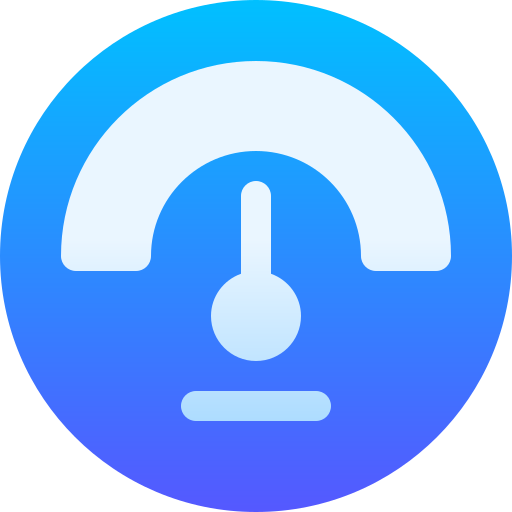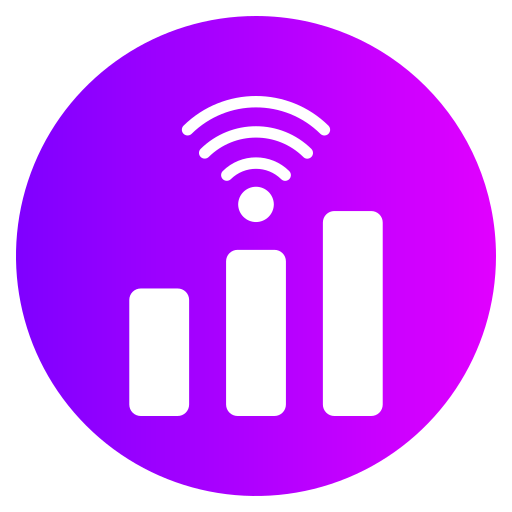Guides
What is Wallet Address?
A wallet address, also known simply as an address, is a unique identifier used in cryptocurrency transactions to specify the destination or recipient of funds. In essence, it's akin to an account number in traditional banking systems.
Here's a breakdown of the key components and functions of a wallet address:
Uniqueness: Each wallet address is unique and serves as an identifier for a specific cryptocurrency wallet. No two wallet addresses are the same across different wallets or even within the same wallet for most cryptocurrencies.
Public Key: A wallet address is typically derived from the public key of a cryptographic key pair associated with a cryptocurrency wallet. The public key is generated from the wallet's private key using cryptographic algorithms.
String of Characters: A wallet address is represented as a string of alphanumeric characters. For example, a Bitcoin address typically begins with a "1" or "3", followed by a series of letters and numbers.
QR Code: Wallet addresses are often presented in the form of a QR code, which can be scanned by a smartphone or other devices equipped with a camera for easy transfer of funds.
One-Way Function: It's important to note that while you can generate a wallet address from a private key, it's computationally infeasible to derive the private key from the wallet address alone. This property ensures the security of cryptocurrency transactions.
Usage: Wallet addresses are used in cryptocurrency transactions to specify the recipient of funds. When someone wants to send cryptocurrency to another party, they input the recipient's wallet address into their cryptocurrency wallet or exchange platform.
Multi-Currency Support: Different cryptocurrencies may have different address formats and derivation methods. Therefore, it's essential to use the correct address format corresponding to the cryptocurrency being sent or received.
It's important to keep your wallet address private, as sharing it indiscriminately could potentially expose your cryptocurrency holdings and compromise security. Conversely, you can freely share your wallet address with others when you want to receive cryptocurrency payments or transfers.
Frequently Asked Questions (FAQ) About Cryptocurrency Wallet Addresses:
- What is a wallet address in cryptocurrency?
A wallet address is a unique identifier used in cryptocurrency transactions to specify the destination or recipient of funds. It's analogous to an account number in traditional banking systems.
- How is a wallet address generated?
A wallet address is typically derived from the public key of a cryptographic key pair associated with a cryptocurrency wallet. The public key is generated from the wallet's private key using cryptographic algorithms.
- Are wallet addresses case-sensitive?
In most cases, yes, wallet addresses are case-sensitive. This means that uppercase and lowercase letters are treated differently. It's crucial to accurately input the wallet address when sending or receiving cryptocurrency to avoid potential errors.
- Can I reuse a wallet address?
Yes, you can reuse a wallet address for receiving multiple transactions. However, for privacy and security reasons, it's generally recommended to use a new address for each transaction to enhance anonymity and reduce the risk of tracking.
- How long is a typical wallet address?
The length of a wallet address varies depending on the cryptocurrency and its addressing scheme. For example, a Bitcoin address is typically 26-35 characters long, while an Ethereum address is 40 characters long. Some cryptocurrencies may have longer or shorter addresses.
- Can I send different cryptocurrencies to the same wallet address?
No, you cannot send different cryptocurrencies to the same wallet address. Each cryptocurrency has its unique address format and derivation method. Sending the wrong cryptocurrency to a wallet address may result in the loss of funds.
- How do I share my wallet address with others?
You can share your wallet address with others by providing them with the alphanumeric string or QR code representing your address. This allows others to send cryptocurrency to your wallet. However, exercise caution when sharing your address to maintain privacy and security.
- Can I derive my private key from my wallet address?
No, it's computationally infeasible to derive the private key from the wallet address alone. Wallet addresses are generated from public keys, which are derived from private keys using cryptographic algorithms. This one-way function ensures the security of cryptocurrency transactions.
- What should I do if I accidentally send cryptocurrency to the wrong address?
Unfortunately, cryptocurrency transactions are irreversible in most cases. If you send cryptocurrency to the wrong address, it's unlikely that you'll be able to recover the funds. Always double-check the recipient's address before confirming a transaction.
- Are there different types of wallet addresses?
Yes, there are different types of wallet addresses, including single-use addresses, multi-signature addresses, and Hierarchical Deterministic (HD) addresses. Each type serves different purposes and may have specific features and functionalities tailored to different use cases.
In conclusion, cryptocurrency wallet addresses play a crucial role in facilitating secure and transparent transactions within the digital currency ecosystem. These unique identifiers serve as destination points for sending and receiving cryptocurrencies, analogous to account numbers in traditional banking systems.
Generated from public keys and typically represented as alphanumeric strings, wallet addresses are derived through cryptographic algorithms, ensuring their security and uniqueness. While wallet addresses are case-sensitive and vary in length depending on the cryptocurrency, they can generally be reused for multiple transactions, though best practices often encourage using new addresses for improved privacy and security.
Sharing wallet addresses enables seamless transactions between users, but caution should be exercised to avoid errors and ensure privacy. Despite the irreversible nature of cryptocurrency transactions, understanding wallet addresses and their functions can help users navigate the digital currency landscape more confidently and securely.
You May Like this Articles
Unearthing Digital Gold: A Beginner's Guide to Bitcoin Mining
- What is Bitcoin rich list?
- The Genesis of Bitcoin: Unraveling the Mystery of Satoshi Nakamoto and the Birth of a Digital Revolution
- Demystifying Bitcoin Transactions: How Does Sending Bitcoin Work?
- What is Bitcoin Block Difficulty?
- Safeguarding Your Digital Fortunes: Tips for Securing Bitcoin Holdings
- What is Blockchain?
- Navigating the Bitcoin Rich List: Insights into Richest Transactions and Whale Movements
- Bitcoin Whale Watching Made Simple: Tracking Bitcoin Whales with WhaleAlertz.com
- Bitcoin Halving Details
- Tracking Crypto Whales: Understanding Their Impact on the Market
- What is a whale alert?
- Crypto whale tracking : WhaleAlertz.com. Find Bitcoin Whales, Transactions, Blocks, Alerts
- How does the Bitcoin halving event impact the supply of new bitcoins?
- Bitcoin: A Comprehensive Guide to Understanding the Basics, Creation, Functionality, and Acquisition
- What is the role of miners in the Bitcoin network?
- Bitcoin Whales: Who They Are and How They Affect the Market?
- Understanding Bitcoin Blocks: The Building Blocks of Blockchain
- Bitcoin Halving: A Comprehensive Guide to Understanding its Significance, Impact, and Implications
- Can I make money from Bitcoin trading?
- Exploring Bitcoin Forums: A Hub for Community, Knowledge, and Discussion
- How can investors track Bitcoin whale movements?
- Understanding the Impact of the Bitcoin Mempool on Transactions
- What are Bitcoin whales and why are they important in the cryptocurrency market?
- What is Bitcoin Block Weight?
Latest Articles
-
What is Bitcoin Halving?
-
Bitcoin Price in India (BTC/INR: Convert Bitcoin (BTC) to Indian Rupee (INR))
-
What is the role of miners in the Bitcoin network?
-
Bitcoin Halving: A Comprehensive Guide to Understanding its Significance, Impact, and Implications
-
What is Bitcoin rich list?
-
Exploring Bitcoin Forums: A Hub for Community, Knowledge, and Discussion
-
What is Wallet Address?
-
Is Bitcoin halving period a good time to invest in the crypto asset?
-
Crypto whale tracking : WhaleAlertz.com. Find Bitcoin Whales, Transactions, Blocks, Alerts
-
What is the Coinbase hex in a Bitcoin block, and how is it structured?
-
How does Bitcoin work?
-
How does the Bitcoin halving event impact the supply of new bitcoins?
-
What factors contribute to the increase in bitcoin blockchain size over time?
-
Bitcoin: A Comprehensive Guide to Understanding the Basics, Creation, Functionality, and Acquisition
-
Safeguarding Your Digital Fortunes: Tips for Securing Bitcoin Holdings
-
What is the transaction per second (TPS) rate of the Bitcoin network?
-
What is Bitcoin Block Weight?
-
How can investors track Bitcoin whale movements?
-
Bitcoin Halving Details
-
What is Block Nonce in Bitcoin?
-
What is a whale alert?
-
Demystifying Bitcoin Transactions: How Does Sending Bitcoin Work?
-
How to use a Bitcoin blockchain explorer?
-
Navigating the Bitcoin Rich List: Insights into Richest Transactions and Whale Movements
-
20 Fascinating Facts About Bitcoin



.png)




